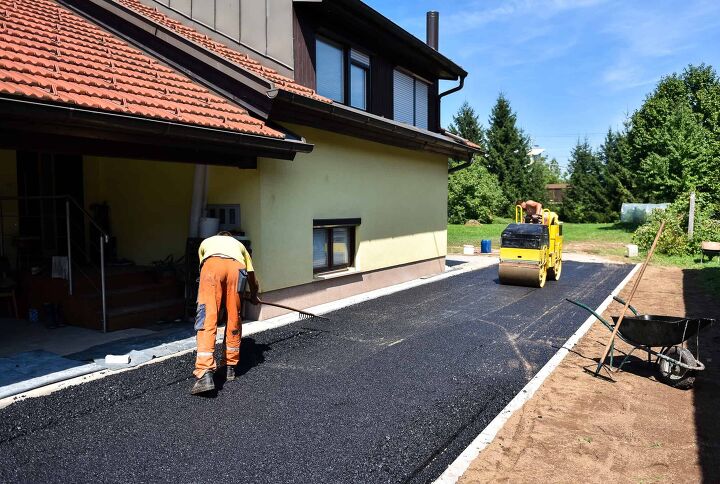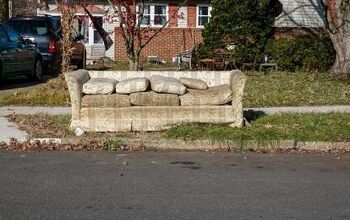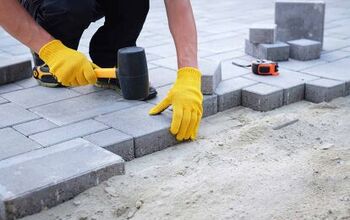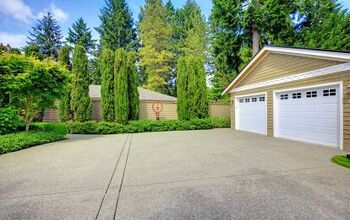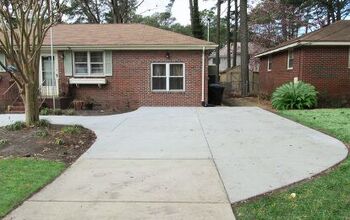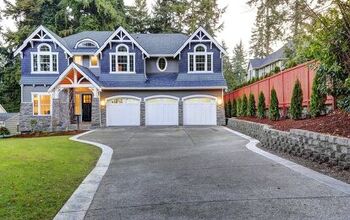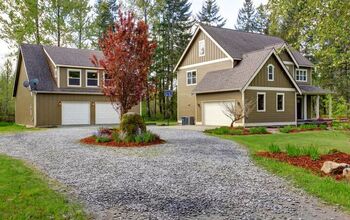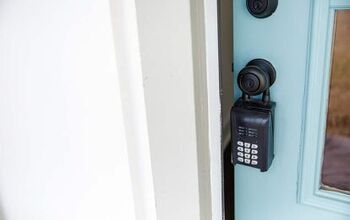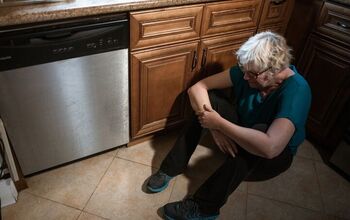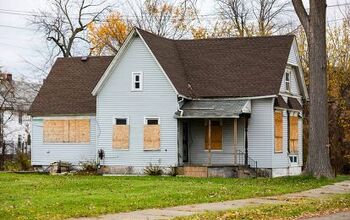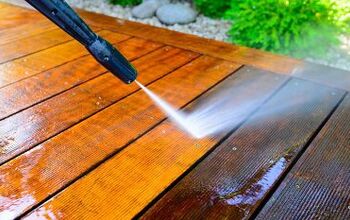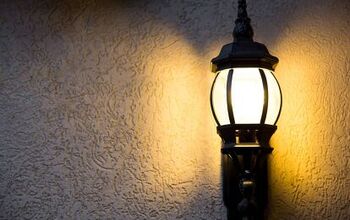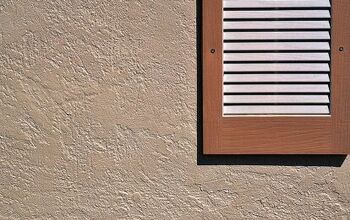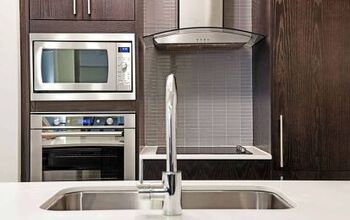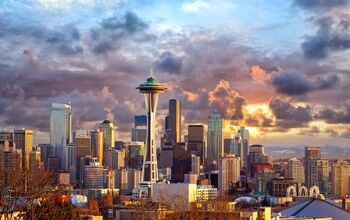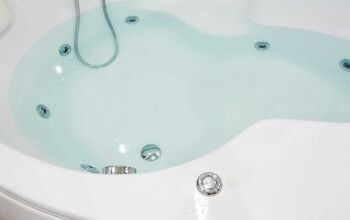How Much Does It Cost to Pave a Driveway?

Like anything else in life, there will come a time where our driveway can become worn down, cracked, and generally look very poor. When this happens, it is time to repave the driveway to make it structurally sound and aesthetically pleasing.
The average cost to pave a driveway is $4,607 and that includes asphalt, materials, and labor. Homeowners spend $3 per square foot to pave with asphalt and $0.75 per square to pave a driveway with gravel. You can expect to spend $150 per ton of gravel, and installation adds another $6 per square foot.
Replacements can be even more expensive. Ultimately, it can come down to what other applications that you are using for the asphalt. For instance, there are various costs for other applications of your asphalt:
| Sidewalk/Walkway | $2,100-$6,500 |
| Backyard Blacktop | $3,500-$32,500 |
| Private Road Paving | $84,000-$468,000 |
So, while asphalt paving is both durable, safe, and convenient, it does require special equipment and upkeep. Generally, it is a better idea to let a professional handle it due to the huge costs that can be involved.
Do You Need Pavers for Driveway and Floors Installed?
Get free, zero-commitment quotes from pro contractors near you.

Cost Per Square Foot
Generally speaking, the average size of a driveway is around 600 square feet. Based on this square footage, paving a driveway will run you around $4,200 to $7,800. Here is a breakdown:
| Asphalt per square foot | $1-$5 |
| Gravel per square foot | $0.50-$1 |
| Installation | $5-$7 |
| Total | $7-$13 |
As you can see, asphalt is much more expensive than gravel. This is because it is much cleaner, safer, and provides better footing to walk and drive on. So, you can expect to spend anywhere from $7 to $13 per square foot for asphalt depending on what type and who you get it through.
Factoring in the installation and any other materials that are required, this is where the total costs come into play. That’s not even factoring in the grading services, any excavation that may be required, or potential curbs or sidewalks as well.
When creating your budget, be certain that you factor in any additional costs (like materials or sidewalks) to keep from being surprised by the much larger number.
Asphalt Average Cost Per Ton
The majority of asphalt manufacturers and providers will sell new materials by the ton. The average comes down to between $100 and $200 per ton for materials. Generally speaking, a ton of materials will cover somewhere in the range of 40 to 80 square feet. How much you need will come down to just how thick your layers are.
For two inches think, you’ll need about 80 square feet per each ton. For four inches of thickness, you will need around 40 square feet per ton. And on a general basis, the average driveway will run anywhere from 7.5 tons to 15 tons of materials total.
Ultimately, the type of job is what dictates the cost and difficulty of the job. Resurfacing is relatively quick, easy, and inexpensive. But if there is any additional work that needs to be done to the driveway, it can add more materials, more services, and even more cost.
Cost of Asphalt per Yard
While the materials are calculated in square footage, we find the cost of our asphalt through the cubic yard. So, asphalt will generally run around $80-$100 per each cubic yard. A ton of asphalt is akin to a range of 1.25 to 2 cubic yards, though this depends on the overall density of your mixture.
Most sellers will set their prices by the ton, though others will use cubic yards as their measurement. If you’re trying to figure out just how much that you need for the job, make sure to ask about the mixture’s density, too.
Hot Asphalt Mix vs Cold Asphalt Mix Prices Per Ton
| Hot Asphalt per ton | $100-$200 |
| Cold Asphalt per bag | $10-$50 |
There is also hot and cold asphalt to take into consideration. They are both sold in different measurements and both have different uses. Hot mix asphalt, which comes per the ton, is used for just about all kinds of repairs and surfacing.
Cold mix asphalt, meanwhile, is sold by the bag. The thing about cold mix is that you can really only use it for temporary repairs. The cold mix isn’t meant to be used to cover the entire surface of the driveway. It is only meant to last a season or two at the most.
A pound of asphalt, just for reference, costs between $0.10 and $0.20 per pound with a ton being equal to 2,000 pounds.
Reclaimed or Recycled Asphalt
You can always use reclaimed or recycled asphalt. There are some that don’t like to reuse materials, but it can be much more cost-effective. Whereas new asphalt can cost $100 to $200 per ton, reclaimed or recycled asphalt can cost just $10 to $20 per ton. That is massive savings on a driveway if it is available within your area.
If you are choosing to replace existing asphalt, make sure that you ask the installer if they are able to mill any old material onsite. Not only will this save on the material costs, it will help to cut down on your overall transporting supplies as well.
There is also gravel as a cheaper consideration. A rock base will run you somewhere in the $0.50 to $1 per square foot range. For the rock base and gravel, you can either use it as a layer between the soil and asphalt or go with a gravel driveway entirely.
Porous Asphalt Cost
There is also porous asphalt to consider. This type of asphalt is meant to completely minimize runoff. By doing this, you might not have to shell out additional funds for grading and leveling prior to the installation.
Porous asphalt will run somewhere in the $8 to $15 range per square foot. Keep in mind that this type of asphalt will require a layer of crushed stone in order to provide better drainage. This means a surface that will soak the water up instead of running it down into the gutter.
More Than Just Driveways
Of course, paving a driveway may not be the only project that you are undertaking. Depending on the size of the property, there are many different paving opportunities to be had. Or, if you are looking to pave something for a commercial or rental property, there are additional costs to consider.
Here are just a few additional paving instances and what they could end up costing in the long run:
| Driveways | $2,900-$4,600 |
| Parking Lots | $21,00-$39,000 |
| Private Roads | $84,000-$468,000 |
| Paths | $1,750-$3,750 |
| Curbing | $1,000-$1,700 |
| Playgrounds | $3,500-$32,500 |
| Game Courts | $3,500-$6,500 |
| Sideways/Walkways | $2,100-$6,500 |
Installing Your Asphalt Driveway
When it comes to the installation process of asphalt driveways, there is a sub grade level that gets set into place first. This level is 2-8 inches deep and will run you around a dollar per square foot. When the asphalt driveway has been installed, it can begin to set within a day or two and will be able to hold cars around the 3 to 5-day mark.
Asphalt is very durable, especially when compared to concrete. Firstly, it doesn’t crack in the way that concrete will and the surface damage that happens won’t be nearly as visible as it is with concrete. The typical asphalt driveway uses materials that will give you a life of two or three decades before they need to be replaced.
Repairs are also generally pretty easy to implement and aren’t usually very expensive. Patches can be laid to solve most issues and even if the driveway isn’t in good condition, you can resurface it using a liquid asphalt mix and gravel to give it up to six more years of life.
Design and Resale
You usually have options when you go with asphalt as far as a design. You can use tar-and-chip asphalt, recycled asphalt, or colored asphalt. When you want to stay budget-conscious, you can go with the standard black that is so common in driveways across the country.
There is also some argument about resale value with asphalt driveways versus concrete driveways. While the driveway material is likely not going to drastically impact the overall sale value of your home, it is important to provide as much curb and aesthetic appeal as you can.
Going Through Paving Options: Gravel
Of course, asphalt is not the only way to go with paving. There is gravel as well, which is definitely the cheapest option out there, even if it isn’t necessarily the best. Generally speaking, it will run you around $2.25 per square foot of gravel. This should come out to $950 based on 600 square feet of driveway.
Gravel is quite durable, lasting as long as 100 years and even longer, in addition to being very cost-effective. It is also resistant to inclement weather and huge temperature fluctuations. A lot of rain, though, may wash some of the gravel away unless you have specifically prepared it for heavy rains.
Still, it isn’t a choice that many make due to its aesthetic and the impact that the loose rocks can have on vehicles.
Gravel Installation, Repairs, and Durability
When installed, there is usually a base made of sand and clay that is raked evenly before the gravel goes down. Generally, the gravel is installed over a sublayer between itself and the soil, allowing side forms to be able to hold. You may want to consider a ground grid paver when installing; this will give your gravel driveway a more pocketed look.
Generally, the best gravel driveways will have multiple layers of gravel around 4 inches in thickness with slightly smaller gravel on each additional layer. The total thickness of these gravel driveways about 12 inches or so.
Putting a finish over your gravel driveway will not only require less overall maintenance, it will create a better surface to drive on than regular stones will. It will also provide more stability and won’t crack. Generally, you will need to weed regularly or add in more gravel in order to properly care for the driveway.
Do You Need Pavers for Driveway and Floors Installed?
Get free, zero-commitment quotes from pro contractors near you.

Cost of Concrete Paving
Concrete is generally seen as a higher-end paving option, but it does have downsides. The cost per square foot is roughly $8.50, meaning that a 600 square foot driveway will run around $3,550 to pave entirely.
The thing to keep in mind is that concrete is susceptible to cracking in climates where it goes from freeze to thaw in the springtime. This can lead to increased repair costs and create an ugly aesthetic if it is not taken care of.
Not only that, you need to pay for a sub base in order to prevent shifting of the soil and the racking that can ensue. Concrete may look better in some cases, but it is far more likely to chip and crack.

Ryan Womeldorf has more than a decade of experience writing. He loves to blog about construction, plumbing, and other home topics. Ryan also loves hockey and a lifelong Buffalo sports fan.
More by Ryan Womeldorf



